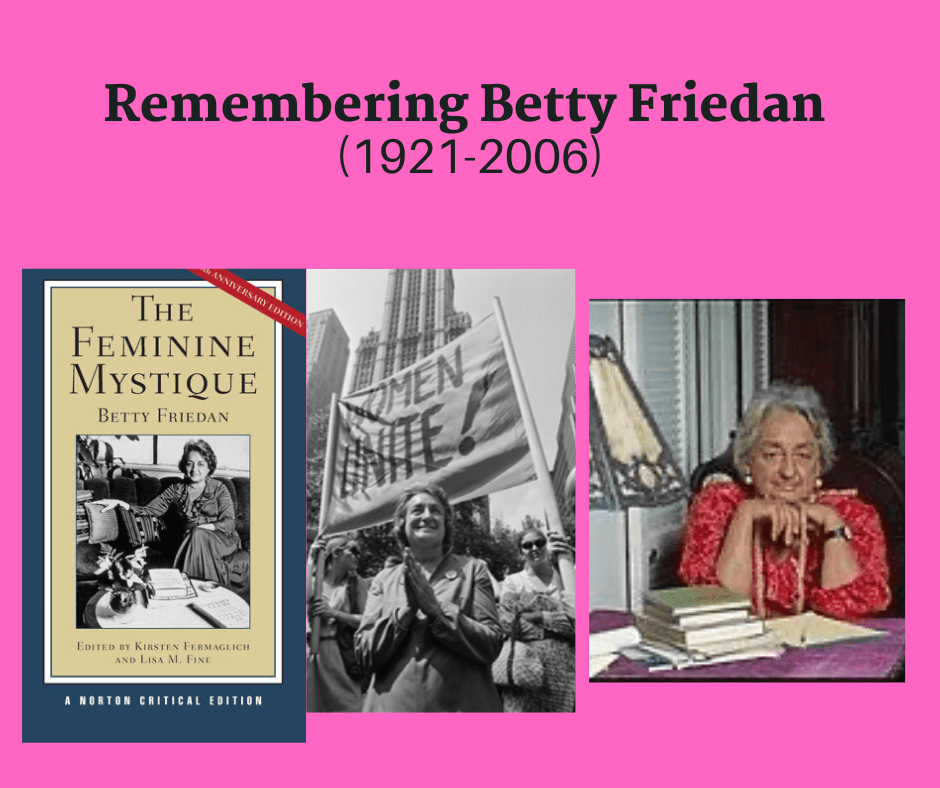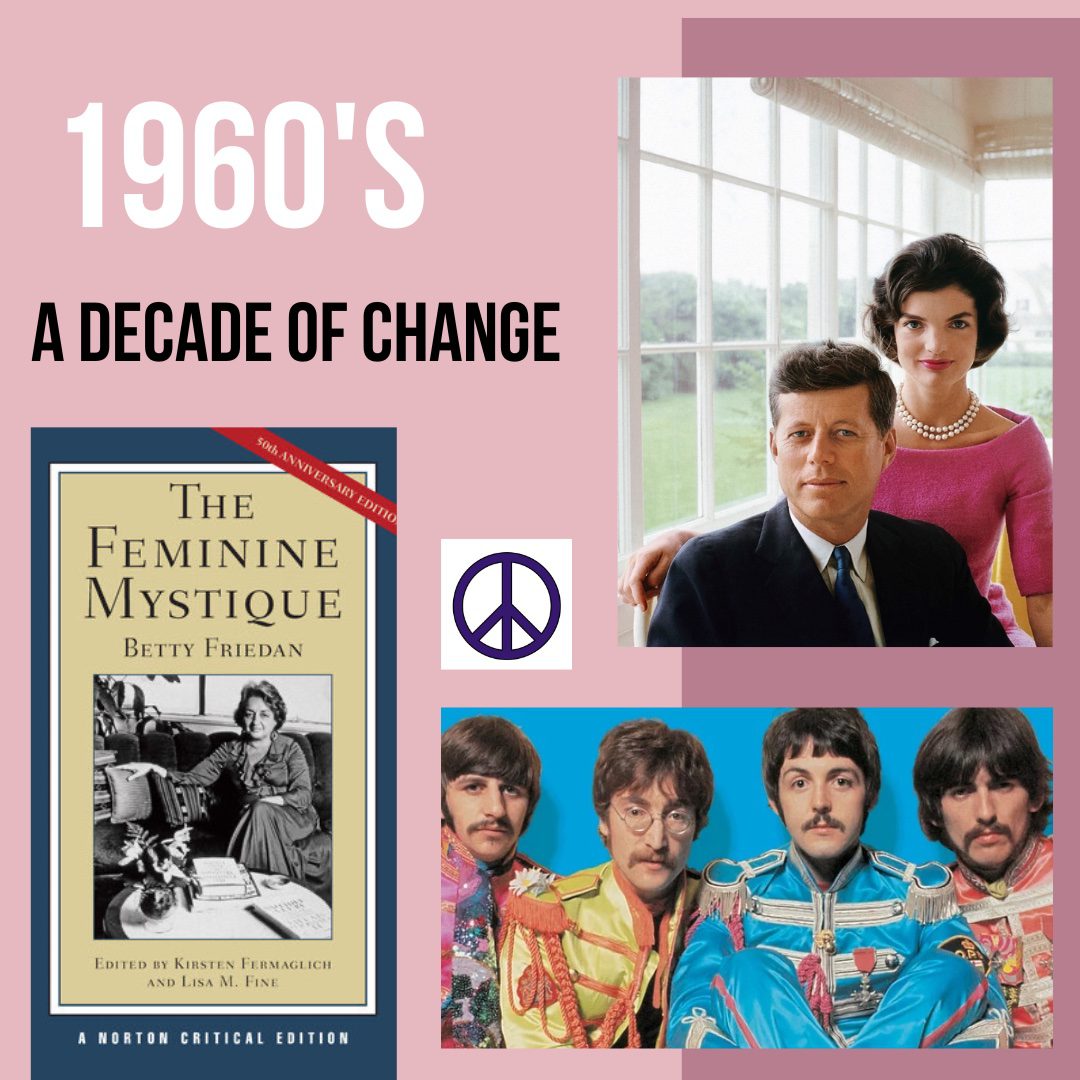March is Women’s History Month, a time to celebrate the great strides women have made. I recently re-read The Feminine Mystique by Betty Friedan, which was published 60 years ago. I was struck by how much Friedan’s work influenced the trajectory of the female characters in my new novel, Shadows We Carry.

Born Bettye Naomi Goldstein in 1921, Friedan has been credited with launching the second wave of feminism in the twentieth century. Her book was published on February 19, 1963, nine months before JFK’s assassination. She began the research for The Feminine Mystique in the late 1950s. After conducting a survey of her Smith classmates at a 15-year reunion, she discovered that most of them were, as she was, unhappy as suburban housewives. She writes about the rage that women experienced but were afraid to express. It was a rage engendered by a society that forced them to solely define themselves by their husbands and children. Along with these interviews and her own research, she posits an American culture, which infantilized women to be nothing more than breeders and caretakers of children and appendages to their husbands. They are defined by their husbands’ careers, financial resources, and status. They are known only as wives and mothers. Those who are unmarried are to be pitied. The minority of women who pursue careers outside the home are suspect of competing with men.
Friedan set out to show how both mass media and educational institutions are guilty of perpetuating this stereotype of women and preventing them from reaching their potential as human beings. From Sigmund Freud to Margaret Meade, she pulls apart their assumptions and research and seeks to demonstrate that their findings are far from scientific but were products of the culture(s) in which they lived or observed.
When we consider American culture of the time, The Feminine Mystique is a cataclysmic jolt. TV families portrayed stay-at-home moms with perfectly coiffed hair, wearing pearls and aprons over shirtwaist dresses. “Father Knows Best,” the title of a popular situation comedy, defines the period.
One of the major themes in my new novel, Shadows We Carry, is the changing role of women and the obstacles women faced throughout the 60’s and 70’s. In the first chapter, twins Bronka and JoJo are in college when JoJo discovers that she is pregnant. In 1969, abortion was still illegal throughout the U.S. In the 70’s, Bronka experiences discrimination when she learns there are quotas for women in graduate programs in journalism. Later as a journalist, she is relegated to women’s issues and cooking columns.
The Feminine Mystique resonated with women and became an instant best-seller. Women identified with the “malaise” Friedan described as “the problem that has no name.” The book helped transform public awareness and brought many women into the vanguard of the women’s movement, just as it propelled Friedan into its early leadership. In 1966, Friedan was one of the founders of the National Organization for Women (NOW).
In her 2006 obituary in the New York Times, it said the book “ignited the contemporary American women’s movement in 1963, permanently transforming the social fabric of the United States and countries around the world.”
Shadows We Carry reflects a world that is beginning to change. I hope that you will read it and that it resonates for you. It will be published on April 25. And if you want to learn more about the second wave of feminism in the twentieth century, The Feminine Mystique is worth the read.


Leave A Comment